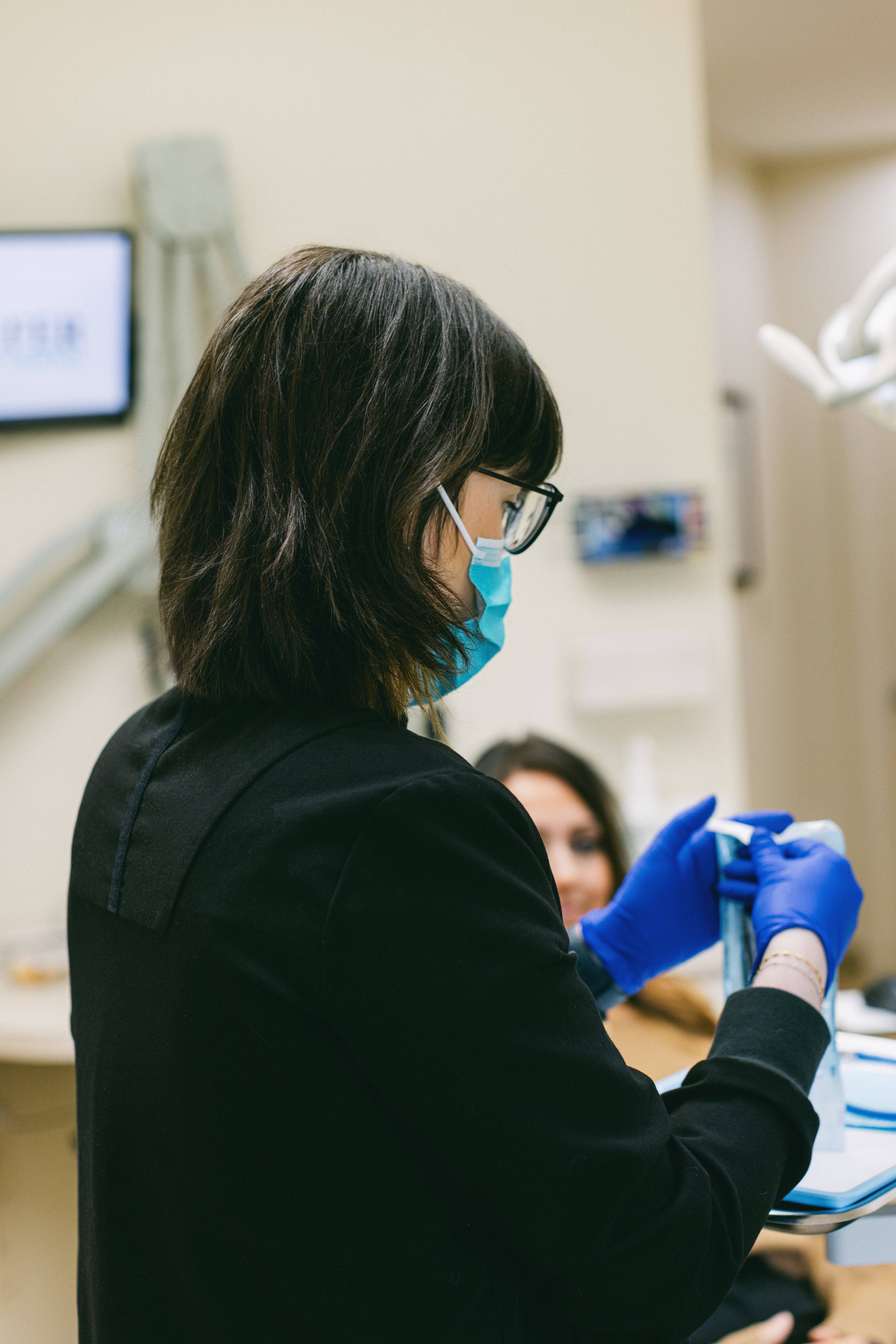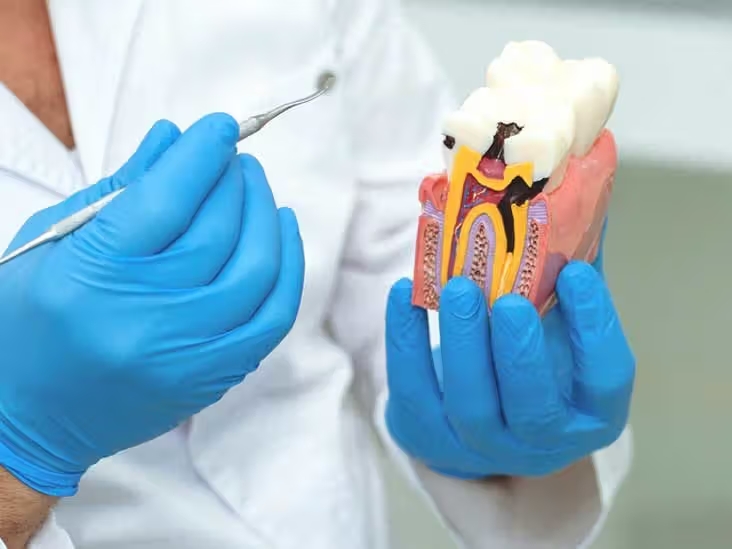Root Canals
Comprehensive Guide to Root Canals: A Lifesaver at Kiefer Family Dental
Welcome to Kiefer Family Dental, your trusted source for comprehensive dental care in Evansville. We understand that dental health is an integral part of your overall well-being, and we’re committed to providing you with the best possible care. In this comprehensive guide, we’ll delve into the world of root canals and explain how they can be a lifesaver for your dental health.
What is a Root Canal?
A root canal, technically known as endodontic therapy, is a dental procedure designed to save a tooth that is severely damaged or infected. It involves the removal of the pulp tissue (nerves, blood vessels, and connective tissue) from the inside of the tooth, cleaning, disinfecting, and sealing the space.
When is a Root Canal Necessary?
Root canals are typically recommended in cases of:
- Severe toothache or pain when chewing
- Sensitivity to hot and cold that lingers
- Swollen or tender gums around a specific tooth
- Darkening or discoloration of a tooth
- Pimple-like bumps on the gums near the affected tooth
The Root Canal Procedure
1. Diagnosis and Evaluation: The first step in the root canal process is a thorough examination and X-rays to assess the extent of damage and determine if a root canal is necessary.
2. Anesthesia and Comfort: To ensure patient comfort, local anesthesia is administered to numb the affected tooth and surrounding area. Patients typically feel minimal discomfort during the procedure.
3. Cleaning and Shaping: After the tooth is numbed, an access hole is made to remove the infected or damaged pulp. The dentist then cleans and shapes the root canals to remove any remaining debris.
4. Filling and Sealing: Once cleaned and shaped, the canals are filled with a biocompatible material, usually gutta-percha, to seal the space and prevent further infection. The access hole is also sealed.
5. Restoration: In many cases, a tooth that has undergone a root canal will require a crown to restore its strength and appearance. Your dentist will discuss the best restoration option for you.
Benefits of Root Canals
1. Pain Relief: Root canals are often associated with pain relief, as they address the source of severe toothaches and discomfort.
2. Tooth Preservation: By saving the natural tooth through a root canal, patients can maintain their natural smile and avoid the complications of tooth loss.
3. Infection Control: Root canals effectively remove infection, preventing it from spreading to other teeth or causing systemic health issues.
4. Efficient and Cost-Effective: Root canals are generally more cost-effective than tooth extraction followed by a tooth replacement option like implants or bridges.
Myths and Misconceptions
1. Root Canals Are Painful: Modern techniques and anesthesia have made root canals much more comfortable than their reputation suggests.
2. Tooth Extraction Is Always Better: While tooth extraction is an option, it is not always the best choice. Root canals preserve natural teeth, which is generally the preferred outcome.
3. Root Canals Cause Illness: There is no scientific evidence to support the myth that root canals can lead to systemic health issues.
Root canals at Kiefer Family Dental are a proven and reliable solution for addressing severe tooth damage and infection. If you’re experiencing dental pain or discomfort, don’t hesitate to contact us for a consultation. Our dedicated team of dental professionals is here to help you maintain a healthy and beautiful smile. Trust us for your root canal needs and experience the difference at Kiefer Family Dental.
Why Choose Kiefer Family Dental for Your Root Canals
When it comes to your dental health, choosing the right provider for root canals is a decision of utmost importance. At Kiefer Family Dental, we understand the significance of this choice, and we are dedicated to providing you with the best possible care. In this article, we’ll outline the compelling reasons why you should choose Kiefer Family Dental for your root canal needs.
Expertise and Experience:
Kiefer Family Dental boasts a team of highly skilled and experienced dentists and endodontists. Our professionals have a wealth of knowledge and expertise in performing successful root canals. You can trust that your dental health is in capable hands, and we are committed to delivering the best outcomes for our patients.
 Patient-Centered Approach:
Patient-Centered Approach:
We prioritize your comfort and well-being at every step of the root canal process. Our friendly and compassionate team ensures that you feel at ease from the moment you walk through our doors. We understand that dental procedures can be daunting, and we go the extra mile to provide a stress-free and comfortable experience for our patients.
State-of-the-Art Technology:
Kiefer Family Dental is equipped with the latest advancements in dental technology. We use cutting-edge equipment and techniques to perform efficient and precise root canals. Our commitment to staying at the forefront of dental innovation ensures that you receive the highest standard of care available.
Personalized Treatment Plans:
We recognize that every patient is unique, and their dental needs may vary. At Kiefer Family Dental, we create personalized treatment plans tailored to your specific condition and requirements. Our dentists take the time to thoroughly evaluate your dental health, discuss your options, and answer any questions you may have, ensuring that you are well-informed and comfortable with your treatment plan.
Comprehensive Dental Care:
Beyond root canals, Kiefer Family Dental offers a wide range of dental services to meet all your oral health needs. From routine check-ups and cleanings to cosmetic dentistry and orthodontic treatments, we are your one-stop destination for comprehensive dental care. We believe in long-term relationships with our patients, and we are here to support your dental health journey at every stage.
Choosing Kiefer Family Dental for your root canal needs means choosing excellence, compassion, and a commitment to your overall dental health. With our team of experts, patient-centered approach, cutting-edge technology, personalized treatment plans, and comprehensive dental services, you can trust us to provide you with the highest quality care available. Your dental health is our priority, and we look forward to helping you achieve and maintain a healthy and beautiful smile.
FAQs About Root Canals
1. What is a root canal procedure?
A root canal, also known as endodontic therapy, is a dental procedure designed to treat a tooth that has a damaged or infected pulp. During the procedure, the dentist removes the infected or damaged pulp, cleans and disinfects the inside of the tooth, and then seals it to prevent further infection. This allows the tooth to be saved and function normally.
2. Why is a root canal necessary?
Root canals are necessary when the pulp inside a tooth becomes infected or inflamed due to deep decay, a cracked or fractured tooth, or repeated dental procedures on the same tooth. Without a root canal, the infection can spread, leading to pain, abscess formation, and potential tooth loss.
3. Is a root canal painful?
Modern root canal procedures are typically not painful. Dentists use local anesthesia to numb the affected tooth and the surrounding area, ensuring that patients feel little to no discomfort during the procedure. In fact, root canals are often performed to relieve the severe pain caused by dental infections.
4. How long does a root canal take?
The duration of a root canal procedure can vary depending on the tooth’s location, complexity, and the extent of infection or damage. In most cases, a root canal can be completed in one or two appointments, each lasting about 60 to 90 minutes. Complex cases may require additional visits.
5. What is the success rate of root canals?
Root canals have a high success rate, with most treated teeth lasting a lifetime. However, the long-term success of a root canal depends on factors such as proper oral hygiene, timely restoration (usually with a crown), and regular dental check-ups. In rare cases, a previously treated tooth may need to be retreated if an issue arises.



 Patient-Centered Approach:
Patient-Centered Approach: